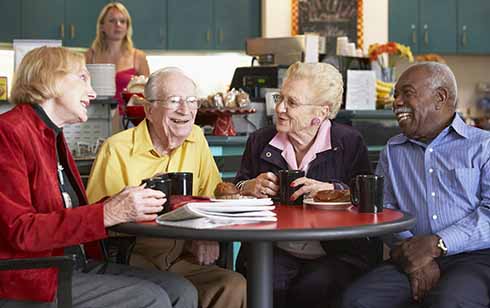 This year, the International Day of Older Persons, on 1 October, has coincided with the Australian Royal Commission into Aged Care Quality and Safety.
This year, the International Day of Older Persons, on 1 October, has coincided with the Australian Royal Commission into Aged Care Quality and Safety.
The Commission has brought to light terrible experiences suffered by aged people in nursing homes. They include neglect, physical and verbal abuse, inadequate food, inappropriate medication, and placing the profitability and reputation of the homes above the human dignity of the people living there.
In addition, many people have described the mental anguish suffered by physically frail but mentally alert residents in an environment where they have no one to talk with, are provided with no mental stimulation and are treated as children.
WHAT VALUE?
These experiences invite us to reflect on the value that we as a society put on our elderly members. Many of the structures taken for granted in our society are based on the unspoken assumption that the value of people is measured by the economic contribution they make as individuals in a competitive society. By these standards the elderly have little value.
The unpaid contribution that people make to caring for children and the elderly, too, is treated as less important than participation in the paid workforce. It follows naturally that the care for the aged and for small children, which would once have been done by relatives, is now largely provided by paid carers.
This change, of course, has had the great benefit of allowing women, on whom the burden of home care historically fell, to find employment, company and creativity outside the family home. It has also put pressure on the elderly. The prevailing priorities of society will make them more likely to doubt their value after they have retired from work, and to fear becoming a burden. If they find a place in homes for the aged they may feel too ashamed to protest about neglect and ill treatment.
LITTLE RESPECT OR AFFECTION
In some cases, of course, people have little respect or affection for their parents, neglect them as they age, and take little interest in them except in the inheritance they expect from them.
The Royal Commission, too, has heard evidence that nursing homes are poorly regulated, carers are poorly trained and do not stay long enough to build good relationships with the residents, and proprietors do not pay attention to complaints.
Although many seek to blame the carers and nursing homes for this kind of behavior, they may reflect the disregard for the elderly in our society. If regulators do not regulate, it is often because they have insufficient powers or resources. If staff are underpaid and overworked, it is because governments do not allocate enough money to care for the elderly. It is not a priority for governments or for society.
VULNERABILITY ACROSS AGES
This double lack of attention is also experienced by vulnerable young people. They, too, are not seen as a priority by society or by governments, and do not receive the care they need in order to live decently.
The International Day for Older Persons invites us to reflect on the value we give to elderly people, indeed to all people, and to reject the view that a person’s worth depends on their economic contribution.
Older people are precious because all people are precious, and society, beginning with families, has a responsibility to respect them, advocate for them, and to ensure that their environment is one in which they can flourish as persons.